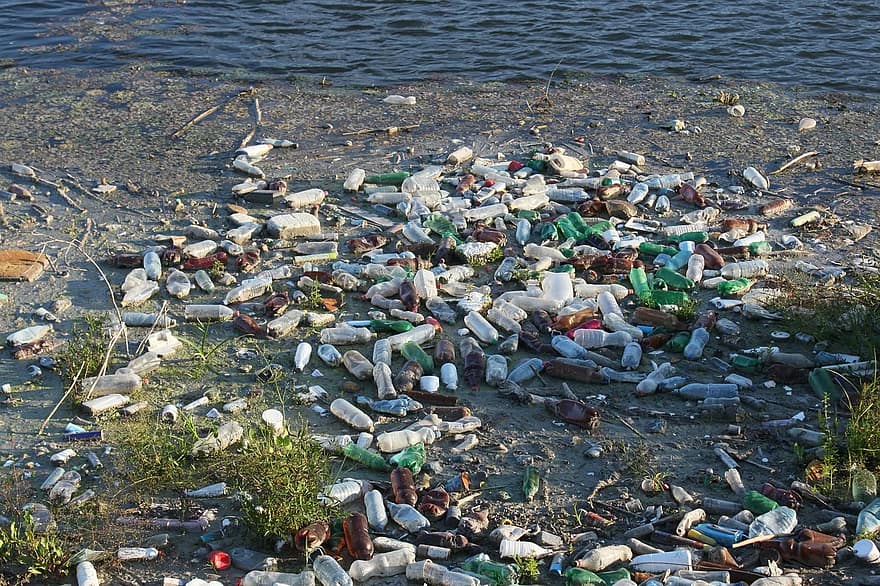An environmentalist has called for an urgent solution to the uncontrolled disposal of solid wastes in and along the Nile River saying they pose health risks to the citizens.
Continue reading Environmentalist calls for an urgent solution, as plastic waste bites River Nile
Category: Health
Save the Children suspends operation in Agok, relocates staff
Save the Children has suspended its operation in Agok of Abyei Administrative Area, and relocated staff due to the violence that erupted last week.
Continue reading Save the Children suspends operation in Agok, relocates staff
Official warns of disease outbreak in overcrowded Torit prison
The Director of Eastern Equatoria State Prisons Service has warned of an outbreak of disease due to overcrowding Continue reading Official warns of disease outbreak in overcrowded Torit prison
48-year-old man arrested for molesting teenager in Juba
A 13-year-old girl has reportedly been molested by a 48-year-old man in Kugi residential of Juba on Thursday. Continue reading 48-year-old man arrested for molesting teenager in Juba
Minister Achuei concerned over increased rates of HIV, AIDS infection
The Minister of Health says that HIV and AIDS has become a major health threat in the country after the infection rate has increased by more than double last year.
Continue reading Minister Achuei concerned over increased rates of HIV, AIDS infection
Global Fund pledges $150M for health sector in S. Sudan
The Global Fund has pledge 150 million US dollars to step up fight against HIV/AIDS, tuberculosis, malaria and COVID19 in South Sudan. Continue reading Global Fund pledges $150M for health sector in S. Sudan
Unity State: Ignorance among elderly hinders cholera vaccine campaigns
Health officials in Unity State have expressed concerns over hesitancy among elderly persons to take cholera vaccine in the area.
Last month, the Ministry of Health and partners launched a cholera vaccine drive in the capital Bentiu, Rubkona County and the Internally Displaced Persons camps in the state.
This is to counter fears of an eminent outbreak of cholera and other waterborne diseases due to reports of poor hygiene and sanitation.
The drug has been prescribed for all people above the age of one.
But the elderly people there are refusing to take the oral vaccine, with some of them regarding it something for children.
“The challenge we face during the vaccination was that the elderly people were refusing to be vaccinated. They think the vaccine is only for children,” Stephen Tot, Unity State Health Minister said, adding that “they don’t know that it is one year and above.”
Tot told Eye Radio, the ministry is now considering intensifying awareness campaigns to counter the misconceptions.
“Actually, we have the committee in place to mobilize the community on the goodness of the vaccines. We are telling the communities to take the vaccines so that it can protect them.”
Cholera is a waterborne disease that is transmitted by eating or drinking water that is contaminated with Vibrio cholerae, the bacteria that causes the disease.
Cholera patients present with watery diarrhea, vomiting, dehydration, abdominal pains and muscle cramps.
Improving access to safe water, sanitation, and hygiene are essential to cholera control.
Also Safe and effective cholera vaccines are often used to complement the core cholera control interventions.
“Schools in Jonglei neglect us”, visually impaired
A visually impaired campaigner in Bor town of Jonglei is appealing to the government and well-wishers to establish a training center for the Continue reading “Schools in Jonglei neglect us”, visually impaired
Local football team squad survives car accident in Maridi County
At least thirteen footballers in Western Equatoria State have survived a fatal car accident along the Maridi-Mundri road at the weekend, the Continue reading Local football team squad survives car accident in Maridi County
17 out of 20 world neglected tropical diseases prevalent in SSD -WHO
South Sudan has a bigger burden of world neglected tropical diseases to pay attention to, according the World Health Organization.
The revelation was made when South Sudan joined the rest of the world to mark the World Neglected Tropical Diseases Day on Sunday.
Fabian Ndenzako, the country director of the World health Organization in South Sudan said out of 20 neglected tropical diseases worldwide, 17 of them are prevalent in South Sudan.
“As you may heard …10 million people around the world are affected by NTDs and of the 20 NTDs globally, 17 are here in South Sudan.”
Ndenzako went on to say “for us, it is more important because we have even bigger burden of the NTDs.
The neglected tropical diseases include trachoma, bilharzia, elephantiasis, sleeping sickness and river blindness.
Others are guinea worm, leprosy, kala azar, parasitic diseases among others.
“So this is really critical for us to really serve lives, but also work together and end the NTDs,” he said.
According to WHO and the national health ministry, 26 counties in the Equatoria region, parts of Lakes, Warrap, Unity and Upper Nile states are particularly at a high risk of Lymphatic filariasis commonly known as elephantiasis.
Speaking during the Sunday event, South Sudan Minister of Health Elizabeth Achuei said,“I am very confident that the fight against neglected tropical diseases in South Sudan has taken a positive momentum, given the strong qualitative data the health ministry has with its partner.”
In South Sudan, the World Neglected Tropical Diseases Day was observed under the theme: “100% committed to eliminate neglected tropical diseases in South Sudan.”
The campaigns aimed to increase intervention efforts according to the South Sudan Master plan 2021-2026 on the elimination of the diseases by 2030.
The illnesses are caused by a variety of pathogens including viruses, bacteria, parasites, fungi and toxins.
According to the Ministry of health, NTDs can be prevented in South Sudan by improving health seeking behaviors and to promote, maintain or restore health service in the country.

